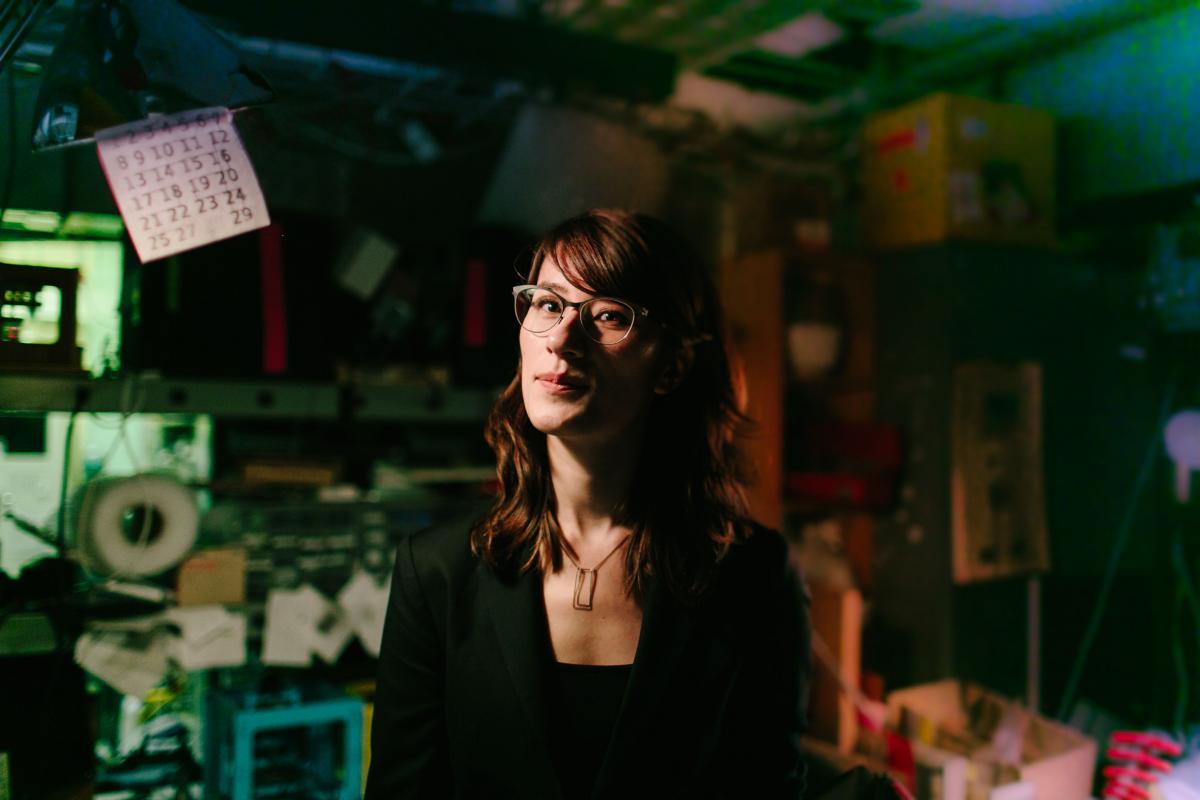Leah Pistorius
October 21, 2020

HCDE Assistant Professor Nadya Peek
Nadya Peek, assistant professor in the Department of Human Centered Design & Engineering is a co-principal investigator on a new award from the National Science Foundation's Emerging Frontiers in Research and Innovation program.
The project, Modular SynBio Processing Units for Distributed Manufacturing of High-Value Products, is aimed at developing engineering infrastructure to enable synthetic biology (SynBio) platforms for small-scale manufacturing of high value products from broadly available biomass resources.
In Synthetic Biology, novel organisms are engineered for useful purposes. SynBio researchers use methods like genetic engineering, DNA synthesis, and DNA sequencing to develop organisms that can e.g. produce biodegradable plastics, lab-grown meats, or chemicals needed in the production of medicine. To harness these organisms, engineers build bioreactors: systems that support a biologically active environment. Widespread implementation of bioreactors could meet national needs for specialty products at small scales or help avoid supply chain disruptions caused by natural disasters or disease pandemics. This project aims to create and demonstrate modular bioreactor technologies that can allow biorefineries and fermentation facilities to repurpose infrastructure and resources for distributed bio-manufacturing.
UW Chemical Engineering

How to build a network of pharmaceutical biofactories
Advances in synthetic biology and biomaterials open up exciting prospects for distributed manufacturing of drugs, food products, and other commodities.
"Very basically," Peek described, "Imagine a microbrewery with tools for brewing beer. But instead of the yeast making alcohol, the yeast are modified with synthetic biology to produce things like precursors to medicine or different kinds of food." An important HCDE research contribution is understanding how people might set up these systems, run them, and collect the products they produce. “Historically, chemical production was highly centralized and run by many specialized technicians.” Peek said. “With distributed production, the profile of the person running the system and the location and context in which they are making these products is really different. Small batch and local production becomes possible for much more complex products, but only if we can develop appropriate modular human-centered systems.”
Lilo Pozzo, professor in the UW Department of Chemical Engineering is the project lead and principal investigator. Co-principal investigators with Professors Peek and Pozzo include Alshakim Nelson, assistant professor in the UW Department of Chemistry; James Carothers, associate professor in the UW Department of Chemical Engineering; and Hal Alper, professor in the Department of Chemical Engineering at the University of Texas at Austin. The $2 million award supports the researchers equally over the following three years.
The researchers on this project have a plan to integrate women and under-represented researchers into the project that will advance the U.S. bio-manufacturing economy.